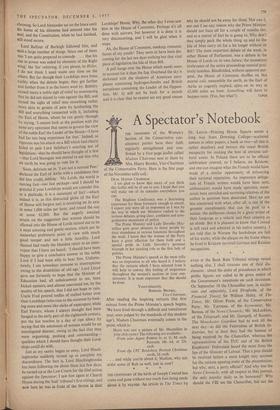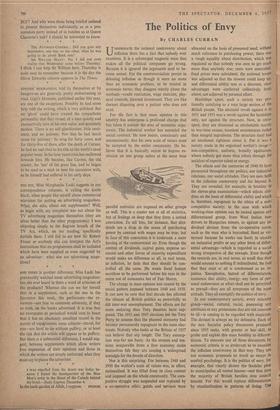EVEN IF the Bank Rate Tribunal sittings reveal nothing else,
I shall treasure one of their dis- closures : about the order of precedence in which public figures are called to Ile given notice of the Government's intentions on such occasions. On September 18 the Chancellor saw, in succes- sion and separately, Lord Drogheda, of the Financial Times;` Sir William Haley, of The Times; Mr. Oliver Poole, of the Conservative Party; Mr. Tyerman, of the Economist; Mr. Bareau, of the News Chronicle; Mr. McLachlan, of the Telegraph; and Mr. 6arnpell, of Reuters. The Manchester Guardian had to wait till the next day—as did the Federation of British In- dustries; but at least they had the honour of being received by the Chancellor, whereas the representatives of the TUC and of the British Employers' Federation heard the news from the lips of the Minister of Labour. That a peer should be received before a mere knight may account for the curious opening order of the presentation; but why, next, a party official? And why was the News Chronicle, with all respect to that. journal, the only popular daily to be honoured? Why should the FBI see the Chancellor, but not the BEF? And why were those being briefed ordered to present themselves individually as at a pre- sentation party instead of in batches as at Queen Charlotte's ball? I should be interested to know.
* * *















































 Previous page
Previous page